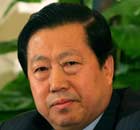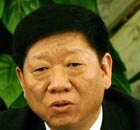North-South climate cooperation in need
Updated: 2009-10-10 08:41
By Liu Junhong (China Daily)

According to the Bali Action Plan, a new binding agreement to reduce greenhouse gas emissions will be finalized at the 15th Conference of Parties (COP15) of the United Nations Framework Convention on Climate Change (UNFCCC) in Copenhagen in December to supersede the Kyoto Protocol, which is set to expire in 2012.
Recently, the European Union proposed that developed countries should contribute collectively to a climate fund by 2020 to help developing countries fight climate change. In fact, developed countries will have monopolized the so-called low-carbon technology by 2020, at which time the fund will become an "import credit" for developing countries to purchase methods and advances in clean technology.
| ||||
In order to establish the initiative to form a new climate order, the Democratic Party of Japan pledged to lower the country's greenhouse gas emissions by 25 percent by 2020 from levels in 1990, while the outgoing government's 2020 goal announced in June marks a 15 percent cut from the 2005 benchmark. The nation's precondition, however, is that emerging giant countries, such as China and India, must promise to cut emissions and open their markets on environment protection. Japan also declared that its high reduction goal should include a quota for overseas purchases and insisted on a noncommittal policy in supply of finance and the transfer of clean technology to developing countries.
But by opening up developing countries' markets, developed countries are attempting to access clean-energy industries and monopolize climate-friendly technology to permanently maintain their advantage.
Since the UNFCCC, an international environment treaty, was reached at the United Nations Conference on Environment and Development (UNCED) in 1992, "climate order" has become the highest moral principle concerning human survival. By including the issue of climate change on the political agenda of the UN Security Council in 2007, "climate order" was uplifted as the theme of international politics. Today, "climate order" again is one of the main pillars of the new international political and economic order.
As early as June 2007, the German government, the host of the G8 summit, set "climate order" as a central topic of the summit and proposed an ambitious target of a 20 percent cut by 2020 by taking advantage of EU's environmentally sound technology and market rules. At the same time, the host nation stressed improving the EU carbon market, setting up a price-fixing rule in a bid to dominate world order of the 21st century through a "carbon trading market."
Thereafter, at the 34th G8 summit held in Hokkaido, the Japanese government advocated a "low-carbon doctrine" instead of "climate morality" in a bid to compete with the EU by changing the benchmark year, suspending carbon trade and setting down the reduction goal. Leaders at the Hokkaido Summit also expressed that a new framework without the participation of the United States, China and India will be fruitless.
Unlike his predecessor's slack response to climate change, the Obama administration proposed a "green new deal" and vows that the economic stimulus will address the crisis with its focus on environment investment. The US insisted that attention should be paid on long-term goals, not simply the 1990 levels held tightly by the EU. So a proposal is being considered to cut US emissions by 14 percent by 2020 compared to 2005 levels. But against the 1990 benchmark, its proposal will only amount to "zero growth".
The US also put forward a limit on global emissions and suggested enterprises discharging excessive pollutants be punished. The Obama administration hopes to promote the trading of emissions with the EU, and break the model of the Euro-based carbon trading to defend the US dollar's position in the low-carbon era.
Centering on the construction of a global climate order, a multidimensional game has emerged among developed countries, as well as between developed countries and developing countries. Therefore, unless there is close North-South and North-North cooperation, the COP15 will have great difficulty in reaching a broad consensus on the principle of "common but differentiated responsibilities" and in establishing a new global climate order of fairness and equity.
The author is a research fellow with the China Institutes of Contemporary International relations.
(China Daily 10/10/2009 page4)
Paper's Digest

Chinese jet takes on Big 2
First large commercial plane set to ride on demand for aircraft as economy grows.
Super-CPU only for domestic eyes
Specials

Gaining ground
Doing business in china for westerners has come a long way, Peter batey says.

Safeguarding environment a priority
China continues to face mounting pressure to curb environmental degradation, despite progress in reducing pollution over the last five years, the environmental protection minister warned.

Employment to remain a continuing challenge
China's top labor official said the country will face a tough employment situation in the next five years.




